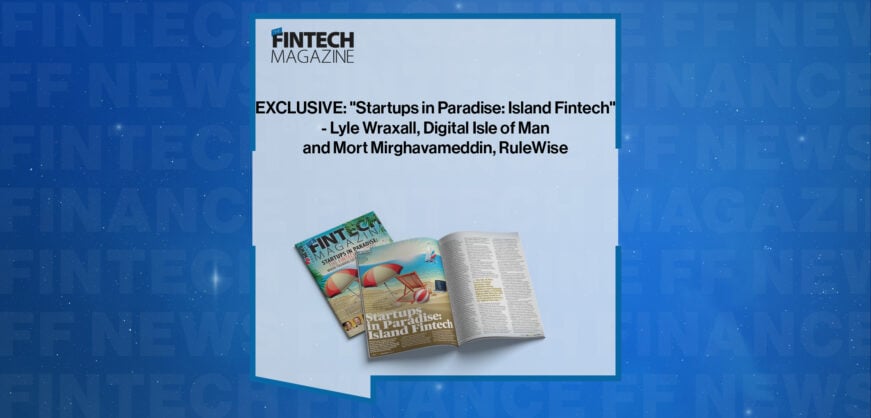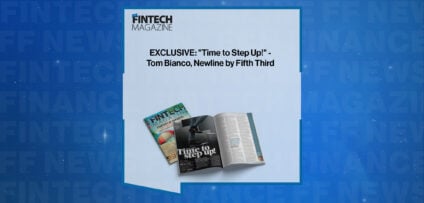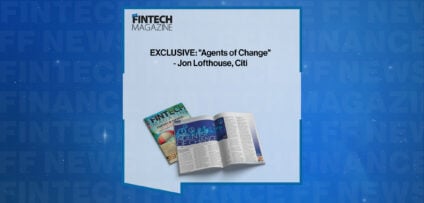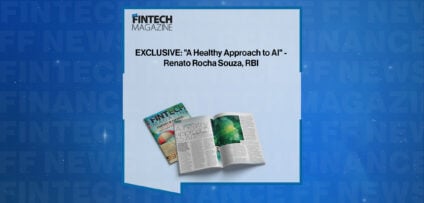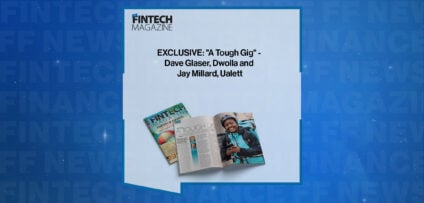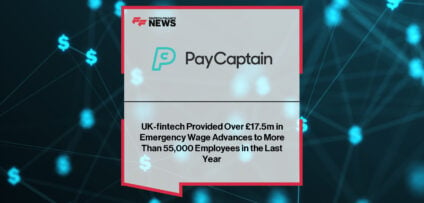Breaking News

EXCLUSIVE: “Surprising Cyprus” – Fiona McFarlane in ‘The Fintech Magazine’
Fintechs who head to the Med’ find a warm welcome on this tiny island. Fiona McFarlane charts the rise of an innovation hotspot and chats with industry leaders at its annual Reflect Festival for tech entrepreneurs
Though small is size, Cyprus has almost always had big ambitions to be viewed internationally as a business hub of choice. And to that end, its government and banking system have worked extensively to turn the island into a desirable headquarters or second office location for international finance and tech companies.
Cyprus’ offering of a skilled workforce at cheaper rates than mainland Europe, oversight bodies, and a geographical location at the crossroads between upper and lower Euroasia, has made it popular with finance companies since the 90s. When Cyprus became part of the EU in 2004, it offered an enticingly low 12.5 per cent corporate income tax, which can be further whittled down to 2.5 per cent via its intellectual property taxation regime.
Since then, it has regularly added thoughtful initiatives directed at sectors that might be struggling elsewhere. While other states were slow to adopt crypto, for example, Cyprus rolled out one of the first digital currency university degrees and accelerated the education of its regulatory bodies. When a messy Brexit left financial firms stranded without an EU licence, Cyprus handed out three-year temporary permits like safety jackets.
Shortly after the EU put an end to the island’s citizenship-through-investment scheme in 2020, Cyprus turned its pro-entrepreneurship campaigns up a notch to let everyone know that the country was serious about building an ecosystem that packed a punch.
The strategy proved to be effective.
SME finance companies with a tech component have trickled in – European ones in search of better incentives, MENA ones looking for access to the EEA, American ones in search of a kindred community. At times, external stimuli like the Ukrainian conflict or the collapse of Lebanon’s startup scene even turned the trickle into a steady stream.
“There are about 446 startups and scaleups with a combined enterprise value of €3.7billion of which 250 are fintech firms”
Cyprus today is home to the highest number of investment companies in the EU in terms of the number of clients by home member state, and its coastal city of Limassol is a hotspot for global firms in finance. Some big names on display include Nest Investment Group, MUFG Investor Services, the global asset arm of Mitsubishi UFJ Financial Group which built an entire office block last year, and Exness, a leading forex broker that reported a total trading volume of $27.2trillion for 2022.
Many of these names attended and sponsored the 2023 Reflect Festival, an annual two-day conference that, according to the event’s platinum sponsor, payabl., which is based in Cyrpus, showcased the island’s blossoming fintech sector particularly well.
Payabl.’s chief product officer Igor Skachkov flew in from Frankfurt to give a presentation and describing the event, said that ‘the energy and level of focus on payments this year is fantastic’.
“At this moment there are said to be about 446 startups and scaleups with a combined enterprise value of €3.7billion in Cyprus, of which 250 are fintech firms. Statistics like this often feel empty, but the turnout at Reflect and its numerous side events brought it to life,” Skachkov added.
Payabl., which was categorised by Deloitte as the island’s second fastest growing fintech company this year, is an omniverse payment facilitator, making a name for itself through offering the highest-trending payment services. At present, it offers 300-plus online and offline payment methods, and has most recently launched a new POS terminal.
With offices in Italy, Germany, Poland, Lithuania, the Netherlands, and the UK – where it was crowned this year’s Best EMI at the Finance Magnates London Summit week – payabl. could have chosen to headquarter itself pretty much anywhere, but picked Cyprus due to the business operating conditions and the impact it could see itself having on the island’s community from a financial, technological, and educational perspective.
Payabl.’s CEO Ugne Buraciene observed: “We’re all about giving support– whether it is to startups at the Reflect Festival, or to the young children of Cyprus and its educators in tech, science, arts and entrepreneurship, which we do via other partnerships such as our recent one with the Youth Tech Fest. We do it because we believe in the benefit of giving every child the chance to learn and explore tech.”
SOLVING THE PAYMENTS PUZZLE
We asked Ugne Buraciene, CEO of payabl. – the second largest fintech in Cyprus and sponsor of its biggest event for entrepreneurs – to tell us three things that define her
#1 Cyprus
Cyprus has emerged in the last decade as an up-and-coming business hub, and recent reports are placing it high within the Middle East and Southern Europe entrepreneurial and tech ecosystem.
I am originally from Lithuania, but have been living on the island for 10 years now and I am happy to call Cyprus home. As the CEO of its second largest fintech, I love finding ways to contribute to the business community here – either through sponsoring events like Reflect, taking on director roles with TechIsland (the largest tech association), or creating a platform for women through my work as the country’s ambassador for the EuropeanWomen in Payments Network, which I have been for five years now.
I also encourage our team to donate time and share their tech knowledge at local events, like November’s Youth Tech Fest Cyprus in Nicosia.
#2 My life in a suitcase
Roughly 50 per cent of my time is spent on the go. I travel in between our offices in Germany, the Netherlands, and the UK, visiting clients and managing partners, but I also attend industry events when I can.
In the past two months I’ve been to the Payment Leaders’ Summit in Rotterdam, the Finance Magnate Summit in London, the Web Summit in Lisbon, the European Women in Payments Conference in Vienna, the Merchant Risk Council in Athens, and Money20/20 in Vegas.
#3 Sense of purpose
I always say that I sort of walked into payments because I didn’t know I had an interest in the field. But, looking back, I was lucky that my first significant job was working for an IT company building software for financial institutions. From that moment, I took time to understand every piece involved in the payments industry – like what it takes to process transactions, how banking works, and how many pieces are really running within an infrastructure.
I didn’t understand the full significance of each element, then, because I didn’t have all of the pieces of the puzzle, but I eventually found them when I moved into a more specific role within payments. From there, I really began to understand the other parts of the ecosystem, and where the industry was going. That is how I ended up doing the job that I do now.
Some CEOs may aspire to run companies like a family business, but I challenge that. I think a company has its own goals and objectives to achieve, but what is important is to keep a healthy environment where people – who are a company’s strongest asset – are motivated, appreciated and have a place to grow.
Personally, I cannot stay in a place where challenges have been exhausted and I am not growing. My innate drive is to learn, dare, and improve myself and the company that I run. So, with me, payabl. is run as an vagile, modern fintech company – and we have a lot of things to do!
The Netherlands leads, whether you know it or not!
NAME: Daniel Van Delft
COMPANY: CEO, Currence, the Netherlands
As the CEO of a company behind iDEAL, the payment tool that 96 per cent of all online shoppers in the Netherlands use, one of the first things I think whenever I’m asked about my perspective on the Dutch payment ecosystem is how little known it is that we are so well-digitised!
In terms of our digital nativeness, you can compare us with more accuracy to the Scandinavian markets than with Germany, despite the latter being our direct neighbour, because our percentage split of digital payments to physical money and cards is 80/20 now in favour of digital. We were also one of the first countries with a very high adoption of mobile phone usage, which gave our mobile banking statistics a real headstart when it took off.
For those who haven’t heard of iDEAL, it is an online payment system that allows users to directly pay from their personal online banking accounts to the business they are ordering from, with a simple direct transfer of money rather than having to share their debit or credit card details online. One accreditation I give to the high adoption rate of iDEAL is the ease at which we can layer frameworks over the iDEAL payments platform, like we saw with mobile banking and the tangible value it gave to users.
Before iDEAL, if you had a subscription in the Netherlands you would normally receive an invoice via email, which had to be signed and sent back. Now, you simply have an iDEAL payment link that pushes payment as soon as you identify yourself. Finished.
My favourite development is that, very excitingly, iDEAL has been chosen by the European Payment Initiative (EPI) to be used as the building block for its EPI payment scheme, which will create a unified pan-European payment solution with a higher degree of transparency and control than is currently available.
This, like others, is one of the many uplifting trends underfoot in the Dutch market. The undertow disadvantage is that we are also a very competitive market with, on average, a lower price per transaction– irrespective of which payment type you talk about– in comparison to other markets. And this is somewhat challenging now, particularly when it comes to funding innovation in new segments or alternative forms of payments.
My favourite development is that, very excitingly, iDEAL has been chosen by the European Payment Initiative (EPI) to be used as the building block for its EPI payment scheme, which will create a unified pan-European payment solution with a higher degree of transparency and control than is currently available.
This, like others, is one of the many uplifting trends underfoot in the Dutch market. The undertow disadvantage is that we are also a very competitive market with, on average, a lower price per transaction– irrespective of which payment type you talk about– in comparison to other markets. And this is somewhat challenging now, particularly when it comes to funding innovation in new segments or alternative forms of payments.
Crypto will, ultimately, change the game
NAME: Dr. Andrea Vachos
COMPANY: Until recently, the Growth Manager at Binance for Greece and Cyprus
In Cyprus, as well as in the rest of the world, cryptocurrencies have really grown in popularity as an alternative method of finance and have started changing the payments game with their ability to allow businesses and individuals to make cross-border transactions in real time.
In terms of payment systems, Binance Pay developed a program that allows Binance users around the globe to send and receive money instantly, with almost zero fees. And this has, so far, performed formidably as a payment system and network, especially for addressing B2C payments. In terms of popularity, it had around $55billion in volume on the network in early 2023.
From my perspective as a blockchain expert, I admire how crypto and blockchain bring decentralisation and real ownership of funds to users through a reliable protocol. And I have certainly seen remittances players and credit card networks turning to the technology, and understanding that, though traditional payments providers are sometimes reluctant to adopt crypto-based payments, they do stand to benefit from the technology’s faster settlement cycles and access to new customer segments.
Satoshi’s vision was to develop Bitcoin as an alternative payment mechanism, so we are on the right adoption patch, but at this moment I believe his vision is still a little more ‘decentralised’ than the way many wish to treat their finances at present.
Not everyone is ready to download a DeFi wallet and manage their funds. Some obviously are – as we have seen in El Salvador where they have adopted Bitcoin as legal tender, thereby making it mandatory for online and offline shops to accept Bitcoin as a payment method – but certainly not all.
Subscriptions are moving up a gear
NAME: Gabriel Colic
COMPANY: Co-founder of FlexCar, Germany and Cyprus
I work for a fast-growing company called FlexCar, which is a vehicle subscription company that offers monthly subscriptions to a variety of cars as a mid to long-term alternative to full car ownership.
One of the big reasons why European statistics show that the average age of a new car purchaser is often over 50 is because traditional car ownership is just not flexible enough for today’s contemporary consumer segments. To be clear, there is nothing novel about mobility services with embedded financial services. Renault, Alfa Romeo and SEAT, for instance, all offer loans and complementary products, such as car insurance or hire-purchase. Volkswagen even has its own bank.
But embedded finance is certainly offering brand new opportunities for businesses like our own to redefine how we interact with consumers, money, payments, and banking. We’re seeing its ability to build deep relationships with customers first-hand. There is a combination of a primary purpose (obtaining a car), followed by a longer relationship where we are able to become a further part of the financial lives of our customers on an ongoing basis by offering add-on options, like vehicle swaps, rental pause periods, or the chance to offset CO2 emissions.
Once trust has been created with modern customers who appreciate the value of an ‘all-in-one’ leasing service, further customer loyalty is won with intuitive ease. So far, we’ve had a strong customer response, which has fuelled our growth from Greece to Cyprus, where we have a fleet of more than 1,000 cars, to Italy and now Mexico. I can’t wait to see where it takes us next.
SMEs need to spread their banking risk
NAME: Alana Condratrov
COMPANY: Director of New Business, Freemarket, UK
Call me a little biased if you want, but I think B2B payments is the big trending topic. Recent research showed that its market cap will be somewhere around $44trillion by 2024, which, in my eyes, translates as a massive opportunity for everybody – including Freemarket.
Our company is actually an aggregator of banking services, focussed on B2B cross-border payments, and aims to provide customers with great value options and banking resilience, the latter of which is also a trending topic because in this climate we have seen how banks can change their risk appetite from one day to the next.
That means that companies are suddenly finding themselves without a banking partner, or payment methods, and looking at needing to factor in three to six months to apply for a new corporate banking account. It’s not a good place to be in business, so being able to mitigate that kind of turbulence is important to the operational resilience of SMEs around the world, which is why we decided to set ourselves apart from other players by working with multiple banking providers.
In my view, giving oneself more than one option in case a bank becomes inhibited by global conflicts, or suddenly becomes reluctant to work with SMEs in general, should be a top priority, because we are moving into an increasingly interdependent and interconnected world, which creates both new opportunities and risks.
On the one hand, a more connected business and financial ecosystem can make it easier to expand globally, but, on the other, this connectivity can result in greater reliance on markets that you have little to no control over. To my mind, versifying you banking relationships through solution providers is key.
Crypto biases in banking must evolve
NAME: Luciano Nonnis
COMPANY: Co-founder, Peanuds, Germany
Aside from a three-year stint in wealth management and finance, I have been ingrained in the crypto space since 2013, perhaps most significantly as the co-founder of the DAO initiative at Germany’s biggest crypto network. I was also the co-founder and CEO of a Cypriot crypto exchange, which I ran successfully and sold in
2021.
Today I’m the co-founder of crypto neobank, Peanuds. The decision to focus on cryptocurrency as our first niche was an obvious choice for us because of the industry’s deafening cries for a crypto-sympathetic banking solution. At the moment, there are more than 970 payment institutions in Europe, and officially only 17 to 18 fintech banks or payment providers are serving the crypto market.
When attending crypto events, the first question we hear is always, ’where do you bank? I need a bank account. I have lost 20 already. They shut down my account for no reason and are not telling me what I did wrong. Even though I pay my taxes, and everything is legal, they just don’t like it.’. Genuinely, it’s crazy how the same story gets told a thousand times, but in the same breath I understand that it all boils down to a payment pain point that is caused by having too few service providers.
It’s like having one bakery to provide the entire world with bread – can you imagine its quality?
As such, Peanuds’ aim is to support the industry by designing a banking partner who understands these business cases, but also promises to listen without judgment or discrimination against individuals and businesses because they are part of a industry that is not yet compatible with the current monetary system, or with other banks, because they are perceived as a competitor.
I believe that the competition aspect is tremendously healthy because the monetary system hasn’t had any competition until now, and since the arrival of crypto, I have seen the banking system improve tenfold. After all, the presence of another player in town pushes others to pick up the pace, right?
Not to mention the fantastic opportunity we have of combining the two wonderful markets together at some point.
There’s a quiet revolution happening in Finland
NAME: Roman Mazur
COMPANY: COO and Co-founder of Narvi Payments, Finland
Back in Finland, I run a corporate fintech solution called Narvi Payments which, in a nutshell, is a tech company that offers corporates a suite of banking services they would otherwise struggle to access, and we plug these into one dashboard via API connections for seamless access.
The Finnish banking system, with its 24/7 credit institutions, is conservative and has gone through some shrinking in the past year. Conversations I hear often revolve around how the space has also evolved into a completely different animal over the last 20 years due to the exponential growth of digitisation, which brings to market products that weren’t even on the horizon a year ago, as well as behaviours.
Mobile payment is a good example: the percentage of Finns who use it jumped from 37 per cent to 58 per cent between 2021 and 2022. And the fintechs who’ve harnessed their proposal will have grown at a monstrous speed.
There are remaining pockets of challenges, which need to be worked on; like legacy messaging boards, which were invented in the 70s, and Bermuda Triangle regions in cross-border payments. It is still too difficult to send funds to certain areas of Africa or LatAm.
Our product in Finland tries to help in its own way, and is quite unique in regards to the fact that we’ve built everything from scratch and we have kept our number of vendors down to a minimum to give clients and ourselves more flexibility to build business, based on our approach.
At the moment, we’re in the process of expanding our payment rails to accommodate a banking-as-a-service platform so that we can connect Nordic IBANs with Western Europe
This article was published in The Fintech Magazine Issue 30, Page 66-72
People In This Post
- Bluefin and Basis Theory Partner to Enable Unified Tokenization Across Digital and In-Person Payments Read more
- Invest Bank and AUTON8 Build Partnership to Drive Digital Resilience and Banking Agility Read more
- ING’s AI Roadmap: Platform, People, and Agentic AI Read more
- UK-fintech Provided Over £17.5m in Emergency Wage Advances to More Than 55,000 Employees in the Last Year Read more
- TreviPay Announces AI-Powered Growth Center to Help Enterprises Predict Buyer Behavior and Drive B2B Sales Read more


















